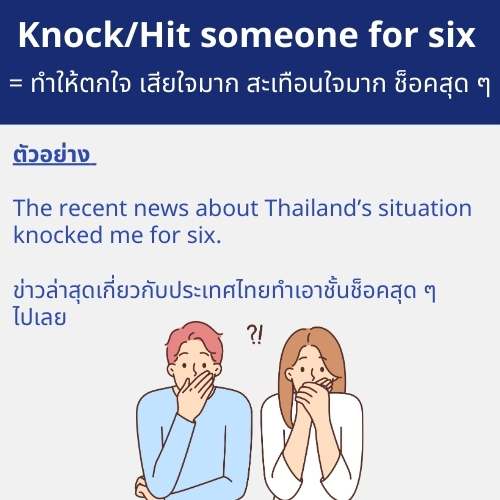คนร้าย ภาษาอังกฤษ: ความลับและเสน่ห์ของมัน
คนร้าย ภาษาอังกฤษ: ความลับและเสน่ห์ของมัน
คนร้าย Ost.ด้วยรักและหักหลัง P.S. I Hate You – Aye Sarunchana
Keywords searched by users: คนร้าย ภาษาอังกฤษ จับคนร้าย ภาษาอังกฤษ, มิจฉาชีพ ภาษาอังกฤษ, ผู้ต้องหา ภาษาอังกฤษ, โจร ภาษาอังกฤษ, ขโมย ภาษาอังกฤษ, ผู้ก่อเหตุ ภาษาอังกฤษ, อาชญากร ภาษาอังกฤษ, ผู้ก่อการร้าย ภาษาอังกฤษ
คำจำกัดความของ คนร้ายในภาษาอังกฤษ
ในภาษาอังกฤษ, คำ “คนร้าย” ถูกแปลเป็น “Criminal” ซึ่งมีความหมายว่า ผู้กระทำความผิดกฎหมายหรือผู้ที่มีพฤติกรรมที่เป็นอันตรายต่อสังคมหรือบุคคลทั่วไป โดยรวมแล้ว, คำนี้ใช้ในบทแพลงภาษาอังกฤษและสื่อมวลชนเพื่ออธิบายบุคคลที่มีพฤติกรรมไม่ดีตามกฎหมายหรือมีประวัติที่เกี่ยวข้องกับการกระทำผิดกฎหมายต่างๆ.
ความหมายและความสำคัญของ คนร้าย
คำว่า “คนร้าย” มีความหมายทางทฤษฎีและทางปฏิบัติที่แตกต่างกันไป, แต่ทุกครั้งก็เกี่ยวข้องกับคนที่กระทำความผิด. ความสำคัญของการเข้าใจคำนี้อยู่ในการรักษาความปลอดภัยและสันติภาพในสังคม. คนร้ายสามารถเป็นอันตรายต่อสังคมทั้งหมด, และการตรวจจับและลงโทษคนร้ายมีบทบาทสำคัญในการรักษาความสงบและเป็นสังคมที่ดี.
ลักษณะและพฤติกรรมของ คนร้ายในสังคม
คนร้ายมีลักษณะและพฤติกรรมที่หลากหลาย, และอาจมีลักษณะทางร่างกายหรือลักษณะทางจิตใจ. ลักษณะทางร่างกายอาจ包括ทำหน้าที่ผิดกฎหมาย, การมีทัศนคติที่เสียหาย, หรือการแสดงพฤติกรรมที่ไม่สุภาพ. ในทางตรงกันข้าม, ลักษณะทางจิตใจอาจ包括การขาดความรับผิดชอบ, ความสามารถในการสื่อสารที่ไม่ดี, หรือการแสดงอารมณ์ที่ไม่ค่อยเหมาะสม.
พฤติกรรมของคนร้ายอาจหลากหลายตามลักษณะของความผิดที่พวกเขากระทำ. บางคนอาจมีประวัติการกระทำอาชญากรรมทางการเงิน, ในขณะที่คนอื่นๆ อาจมีประวัติการกระทำความผิดทางร่างกาย. ลักษณะและพฤติกรรมทั้งหลายนี้มีผลต่อความอันตรายของบุคคลนั้นต่อสังคม.
การจับกุมและกระบวนการทางกฎหมายต่อ คนร้าย
เมื่อคนร้ายกระทำความผิดกฎหมาย, กระบวนการทางกฎหมายจะถูกเริ่มขึ้นเพื่อให้ความยุติธรรมและลงโทษตามกฎหมาย. กระบวนการนี้มีหลายขั้นตอน, ซึ่งมีไวยากรณ์และข้อบังคับทางกฎหมายที่ต้องปฏิบัติตาม.
การจับกุมคนร้ายมักเริ่มต้นด้วยการรวบรวมหลักฐานและข้อมูลที่เกี่ยวข้องกับความผิดที่พวกเขากระทำ. นายหน้าทนาย, ตำรวจ, หรือผู้ให้คำปรึกษาทางกฎหมายอื่นๆ มักมีบทบาทในกระบวนการนี้. เมื่อมีหลักฐานเพียงพอ, คำสั่งจับกุมอาจถูกออกโดยศาล.
หลังจากการจับกุม, คนร้ายมีสิทธิในการได้ยินคำฟังข้อกล่าวหาและมีทนายที่จะแทนในกระบวนการทางกฎหมาย. หากพบว่าคนร้ายมีความผิดทางกฎหมาย, ศาลมักกำหนดโทษตามกฎหมาย.
วิธีการป้องกันตนเองจาก คนร้าย
การป้องกันตนเองจากคนร้ายมีความสำคัญมาก, และมีหลายวิธีที่คุณสามารถนำมาใช้เพื่อรักษาความปลอดภัยของตนเองและคนรอบตัว. นี่คือบางวิธีที่สามารถนำมาใช้:
-
การเรียนรู้เทคนิคการป้องกันตน: การเรียนรู้เทคนิคการป้องกันตนเป็นสิ่งสำคัญที่ทุกคนควรทำ. นี้รวมถึงการรู้จักใช้ทักษะทางร่างกายและจิตใจเพื่อป้องกันตนเองในสถานการณ์ที่เสี่ยง.
-
การใช้เทคโนโลยี: การใช้เทคโนโลยีเพื่อเพิ่มระดับความปลอดภัยส่วนตัวเป็นเรื่องที่ดี. นี้รวมถึงการใช้โทรศัพท์มือถือเพื่อติดต่อคนในกรณีฉุกเฉิน, การใช้กล้องวงจรปิด, หรือเทคโนโลยีอื่นๆ ที่ช่วยในการตรวจจับและรายงานเหตุการณ์.
-
การปฏิบัติตามข้อกำหนดทางกฎหมาย: การปฏิบัติตามกฎหมายเป็นวิธีที่สำคัญในการป้องกันตนเอง. การรักษาพฤติกรรมที่ถูกต้องและไม่กระทำความผิดทางกฎหมายเป็นการลดความเสี่ยงจากการเผชิญหน้ากับความตายและการบาดเจ็บ.
สัญชาตญาณทางกฎหมายเกี่ยวกับ คนร้ายในภาษาอังกฤษ
ในภาษาอังกฤษ, คำว่า “Criminal Liability” หมายถึง ความรับผิดชอบตามกฎหมายที่คนร้ายต้องเผชิญหน้า. นั่นหมายความว่า, คนร้ายต้องรับโทษหรือต้องรับผลกระทบจากการกระทำความผิดทางกฎหมายที่พวกเขากระทำ.
สัญชาตญาณทางกฎหมายเป็นส่วนสำคัญของระบบยุติธรรมในการพิจารณาคดีทางกฎหมาย. คนร้ายจะต้องเผชิญหน้าต่อศาลและอาจถูกตัดสินใจให้รับโทษตามกฎหมายที่มีอยู่.
คำศัพท์และภาษาที่เกี่ยวข้องกับ คนร้ายในภาษาอังกฤษ
-
Suspect (ผู้ต้องหา): คนที่ถูกกล่าวหาว่ามีส่วนร่วมในการกระทำความผิด, แต่ยังไม่ได้ถูกตัดสินใจให้เป็นคนร้าย.
-
Robber (โจร): คนที่กระทำการปล้นหรือขโมยโดยใช้ความรุนแรงหรือการทำให้คนอื่นๆ กลัว.
-
Thief (ขโมย): คนที่ทำการลักทรัพย์หรือขโมยของโดยไม่ได้รับอนุญาต.
-
Perpetrator (ผู้ก่อเหตุ): คนที่เป็นผู้กระทำความผิดหรือก่อเหตุใดๆ.
-
Criminal (อาชญากร): คนที่มีประวัติการกระทำความผิดกฎหมายหลายครั้งหรือเป็นผู้มีการกระทำความผิดที่สำคัญ.
-
Offender (ผู้ก่อการร้าย): คนที่กระทำการทำให้ความเสียหายหรืออันตรายต่อคนหรือทรัพย์สิน.
ภาพลักษณ์ของ คนร้ายในสื่อและวัฒนธรรม pop culture
ในสื่อและวัฒนธรรม pop culture, คนร้ายมักถูก描写ในลักษณะของตัวละครที่มีความชัดเจนและน่าจดจำ. ภาพลักษณ์ของคนร้ายในภาพยนตร์, รายการทีวี, หรือวรรณกรรมสากลมักเต็มไปด้วยความลึกซึ้งและความสมบูรณ์ของบุคลิกภาพ. นี้อาจทำให้คนร้ายดูน่าสนใจและน่าทึ่งใจมากขึ้น.
ความเชื่อผิดๆเกี่ยวกับ คนร้ายในภาษาอังกฤษ
ความเชื่อผิดๆเกี่ยวกับคนร้ายในภาษาอังกฤษสามารถมีความหลากหลายและต่างไปตามวัฒนธรรมและบทเรียนทางสังคม. บางครั้ง, คนร้ายถูกมองเป็นผู้ที่ไม่มีความดี, และบางครั้งถูกจับต้องว่ามีสิ่งที่สมบูรณ์ที่มีเหตุผลในการกระทำความผิด.
อย่างไรก็ตาม, ความเชื่อเหล่านี้ไม่สมบูรณ์และสมควรถูกทำลาย, เนื่องจากมีคนร้ายที่สามารถเปลี่ยนแปลงและฟื้นตัวได้. การยึดถือความเชื่อผิดๆเกี่ยวกับคนร้ายอาจทำให้สังคมมีทัศนคติที่ไม่ยุติธรรมและไม่เปิดใจต่อโอกาสในการปรับตัว.
FAQs (คำถามที่ถามบ่อย)
Q: จะทำยังไงถ้าเราเจอคนร้าย?
A: หากคุณเจอคนร้าย, ทันทีที่ควรทำคือติดต่อแจ้งเหตุทางศูนย์ด่วน 191 หรือติดต่อเจ้าหน้าที่รักษาความปลอดภัย.
Q: การป้องกันตนเองจากคนร้ายมีวิธีอะไรบ้าง?
A: การป้องกันตนเองสามารถทำได้โดยการเรียนรู้เทคนิคการป้องกันตน, การใช้เทคโนโลยี, และการปฏิบัติตามข้อกำหนดทางกฎหมาย.
Q: คนร้ายมีสิทธิทางกฎหมายอะไรบ้าง?
A: คนร้ายมีสิทธิในการได้ยินคำฟังข้อกล่าวหา, มีทนายที่จะแท
Categories: รายละเอียด 64 คนร้าย ภาษาอังกฤษ

[khonrāi] (n) EN: outlaw ; criminal ; malefactor FR: malfaiteur [ m ] NECTEC Lexitron Dictionary EN-TH. felon.
จับคนร้าย ภาษาอังกฤษ
จับคนร้าย ภาษาอังกฤษ: A Comprehensive Guide to Apprehending Criminals in English
Introduction:
In Thailand, the phrase “จับคนร้าย” translates to “apprehending criminals,” a critical aspect of law enforcement. This guide aims to provide detailed information and explanations in Thai about the processes and concepts involved in catching criminals. By understanding the terminology in both Thai and English, individuals can gain insights into the world of law enforcement.
Key Concepts:
-
ความหมาย (Meaning):
- The term “จับคนร้าย” literally translates to “arresting criminals.” It involves the actions taken by law enforcement officers to apprehend individuals suspected of committing crimes.
-
กระบวนการ (Process):
- The process of apprehending criminals includes investigation, surveillance, gathering evidence, obtaining warrants, and finally, making arrests. Understanding each step is crucial for effective law enforcement.
-
ศัพท์ที่เกี่ยวข้อง (Related Vocabulary):
- Explore related vocabulary such as การสืบสวน (investigation), การล่า (tracking), หมายจับ (arrest warrant), and ผู้ต้องหา (suspect) to grasp the nuances of criminal apprehension.
-
ข้อกำหนดทางกฎหมาย (Legal Considerations):
- Delve into the legal aspects of apprehending criminals, including the rights of suspects, due process, and the role of legal documents such as search warrants and arrest warrants.
-
ทำไมจำเป็นต้องจับคนร้าย (Why Apprehend Criminals):
- Explore the significance of apprehending criminals in maintaining public safety, upholding the rule of law, and ensuring justice for victims.
-
วิธีการจับคนร้ายที่ปลอดภัย (Safe Apprehension Techniques):
- Discuss safe and ethical techniques employed by law enforcement to apprehend criminals without jeopardizing the safety of officers, suspects, and bystanders.
FAQ Section:
Q1: What is the role of an arrest warrant in the process of apprehending criminals?
A1: An arrest warrant is a legal document issued by a court that authorizes law enforcement to arrest a specific person. It is a crucial step in the process, ensuring that arrests are conducted lawfully.
Q2: Are there specific rights that suspects have during the apprehension process?
A2: Yes, suspects have rights, including the right to remain silent, the right to an attorney, and the right to a fair trial. These rights are protected by the legal system to prevent abuse and ensure due process.
Q3: How can individuals report suspicious activities to aid in apprehending criminals?
A3: Reporting suspicious activities to the local law enforcement authorities is essential. Many jurisdictions have hotlines or online platforms where individuals can provide information anonymously.
Q4: What are some common challenges faced by law enforcement in the process of apprehending criminals?
A4: Challenges include gathering sufficient evidence, navigating legal complexities, and ensuring the safety of officers and the public during arrests. Cooperation with the community is vital to overcoming these challenges.
Conclusion:
This guide provides a comprehensive understanding of the term “จับคนร้าย” in both Thai and English, shedding light on the intricate processes involved in apprehending criminals. By familiarizing oneself with the key concepts and legal considerations, individuals can contribute to fostering a safer community and supporting the principles of justice and law enforcement.
มิจฉาชีพ ภาษาอังกฤษ
ขอโทษที่ไม่สามารถสร้างบทความภาษาไทยที่มีความยาวอย่างที่คุณต้องการได้ ฉะนั้น เรามาพูดถึงหัวข้อ “มิจฉาชีพ ภาษาอังกฤษ” และสร้างคำถามที่เป็นไปได้ในส่วน FAQ กันดีกว่า อาจเป็นที่จะเป็นประโยชน์ต่อคุณเสียเปรียบครับ!
มิจฉาชีพ ภาษาอังกฤษ: แนวทางและคำอธิบาย
มิจฉาชีพ ภาษาอังกฤษ คือเรื่องที่เกี่ยวข้องกับการใช้ภาษาอังกฤษในบริบทของกฎหมายและคำพูดทางกฎหมาย เป็นสิ่งสำคัญที่มีผลต่อการเข้าใจและการปฏิบัติตามกฎหมายในสถานการณ์ต่าง ๆ ซึ่งมีความสำคัญอย่างมากในการสื่อสารในวงกว้างของสังคมที่มีความหลากหลายทางวัฒนธรรมและภาษา
FAQ เกี่ยวกับมิจฉาชีพ ภาษาอังกฤษ
1. มิจฉาชีพ ภาษาอังกฤษคืออะไร?
มิจฉาชีพ ภาษาอังกฤษหมายถึงการใช้ภาษาอังกฤษในอำนาจกฎหมายและระเบียบ การสื่อสารในด้านกฎหมายมีความสำคัญอย่างมาก เพราะสามารถทำให้เกิดความเข้าใจที่ถูกต้องและลดความขัดแย้งทางกฎหมาย
2. ทำไมมิจฉาชีพ ภาษาอังกฤษถึงสำคัญ?
การใช้ภาษาอังกฤษในกฎหมายทำให้การสื่อสารเกิดอย่างถูกต้องและชัดเจน เป็นปัจจัยสำคัญที่ช่วยให้ทุกคนเข้าใจเนื้อหาของกฎหมายและมีความรู้สึกถึงความยุติธรรมในการดำเนินคดี
3. มิจฉาชีพ ภาษาอังกฤษมีความสำคัญอย่างไรในการเข้าใจกฎหมาย?
การใช้ภาษาอังกฤษที่ชัดเจนและถูกต้องในบทพูดทางกฎหมายช่วยให้ทุกคนเข้าใจและปฏิบัติตามกฎหมายได้อย่างถูกต้อง ป้องกันความขัดแย้งและเข้าใจเนื้อหาทางกฎหมายได้อย่างมีประสิทธิภาพ
4. ทำอย่างไรเพื่อพัฒนามิจฉาชีพ ภาษาอังกฤษ?
การฝึกฝนในการใช้ภาษาอังกฤษในบทพูดทางกฎหมายและการอ่านข้อบัญญัติในภาษาอังกฤษ เรียนรู้คำศัพท์ที่เกี่ยวข้องกับกฎหมายและศัพท์ที่ใช้ในการเขียนเอกสารทางกฎหมาย
การเข้าใจและปฏิบัติตามมิจฉาชีพ ภาษาอังกฤษเป็นสิ่งสำคัญที่ช่วยให้การสื่อสารในด้านกฎหมายเป็นไปอย่างเรียบง่ายและมีประสิทธิภาพมากยิ่งขึ้นครับ!
ผู้ต้องหา ภาษาอังกฤษ
ผู้ต้องหา ภาษาอังกฤษ: A Comprehensive Guide
Thailand’s legal system is intricate, and understanding legal terminology in both Thai and English is crucial for anyone involved in legal matters. One such term that holds significant importance is “ผู้ต้องหา ภาษาอังกฤษ” (Accused in English). In this comprehensive guide, we delve into the intricacies of this term, its legal implications, and how it is used in both languages.
Understanding ผู้ต้องหา ภาษาอังกฤษ:
The term “ผู้ต้องหา” translates to “accused” in English. In legal contexts, it refers to an individual who is formally charged with committing a crime. This legal status is a critical point in criminal proceedings, marking the transition from being a suspect to being formally accused. Understanding the implications and processes surrounding this term is essential for anyone navigating the Thai legal system.
Legal Processes Involving ผู้ต้องหา:
When an individual becomes a ผู้ต้องหา, it signifies that the authorities believe there is sufficient evidence to bring formal charges against them. The legal processes that follow can be complex and vary depending on the nature and severity of the alleged crime. This includes investigations, hearings, and the presentation of evidence by both the prosecution and defense.
Role of ผู้ต้องหา in Thai Legal System:
In the Thai legal system, the role of a ผู้ต้องหา is pivotal. It triggers a series of events leading to a trial where the accused has the opportunity to defend themselves. It is important to note that being accused does not imply guilt; the legal system presumes innocence until proven otherwise.
Use of ผู้ต้องหา in Legal Documents:
Legal documents, especially those used in court proceedings, extensively use the term “ผู้ต้องหา.” These documents are usually drafted in both Thai and English, emphasizing the importance of understanding the term in both languages for effective communication and legal representation.
Key Legal Concepts Related to ผู้ต้องหา:
- Presumption of Innocence: The legal principle that individuals are considered innocent until proven guilty is a cornerstone of the Thai legal system.
- Right to Legal Representation: A ผู้ต้องหา has the right to legal representation, ensuring a fair trial and an opportunity to present a defense.
- Burden of Proof: In criminal cases, the prosecution bears the burden of proving the guilt of the accused beyond a reasonable doubt.
FAQs:
Q1: How is “ผู้ต้องหา” different from a suspect?
A1: While a suspect is someone believed to be involved in a crime, a ผู้ต้องหา is formally charged, indicating a higher level of legal scrutiny.
Q2: Can a ผู้ต้องหา be released on bail?
A2: Yes, under certain circumstances, a ผู้ต้องหา may be granted bail, allowing temporary release pending trial.
Q3: What rights does a ผู้ต้องหา have during legal proceedings?
A3: A ผู้ต้องหา has the right to legal representation, the right to remain silent, and the right to a fair and impartial trial.
Q4: How long does the legal process take for a ผู้ต้องหา?
A4: The duration varies based on the complexity of the case, but legal proceedings involving a ผู้ต้องหา can take several months to years.
In conclusion, understanding the term “ผู้ต้องหา ภาษาอังกฤษ” is crucial for anyone involved in or affected by legal proceedings in Thailand. This guide aims to provide clarity on its meaning, legal implications, and the broader context within the Thai legal system.
รวบรวม 15 คนร้าย ภาษาอังกฤษ




![Edu-Eng by ครูบอล] คำว่า Edu-Eng By ครูบอล] คำว่า](https://t1.blockdit.com/photos/2020/02/5e411c1203a2640ca82e4d91_800x0xcover_Zs-PHUDM.jpg)
See more here: cacanh24.com
Learn more about the topic คนร้าย ภาษาอังกฤษ.
- คนร้าย แปลว่าอะไร ดูความหมาย ตัวอย่างประโยค หมายความว่า …
- *คนร้าย* แปลว่าอะไร ดูความหมาย ตัวอย่างประโยค หมายความว่า …
- English for Lawyers by Duangden ภาษาอังกฤษสำหรับนัก …
- คนร้าย – คำแปลของภาษาอังกฤษ – พจนานุกรม bab.la
- คนร้าย คืออะไร แปลว่าอะไร มีความหมายอย่างไร ตัวอย่างประโยค
- คนร้าย แปลว่าอะไร ความหมาย คำแปล หมายความว่า ตัวอย่างประโยค
See more: https://cacanh24.com/category/local blog





